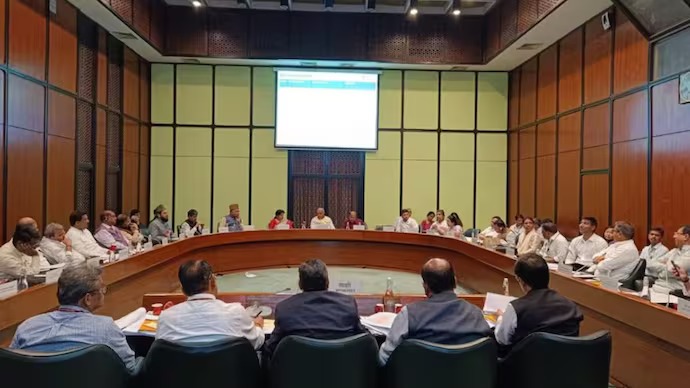The Joint Parliamentary Committee (JPC) on the Waqf (Amendment) Bill, 2024, will meet with the All India Shia Personal Law Board (AISPLB) today to gather views and suggestions on the proposed amendments. The meeting is scheduled for 3 pm at Parliament House Annexe.
Recent Developments
The Waqf (Amendment) Bill has faced strong opposition from certain quarters, including the Darul Uloom Deoband, which raised concerns during a December 11 JPC meeting. Speaking on behalf of the delegation, Maulana Arshad Madani expressed apprehensions about the bill’s potential to undermine the safety and sanctity of Muslim places of worship.
Key Concerns Raised by Darul Uloom Deoband
- Historical and Religious Sites at Risk: Maulana Madani highlighted the difficulty in tracing original donors or Waqifs for many ancient mosques and waqf properties, stating that the proposed amendments could create legal challenges for safeguarding these sites.
- 22-Point Suggestion: The delegation presented a detailed 22-point suggestion outlining their objections and recommendations to address perceived flaws in the bill.
Objective of the Proposed Amendments
The Waqf (Amendment) Bill, 2024, seeks to address longstanding issues associated with waqf properties, such as:
- Mismanagement and Corruption: Enhancing governance mechanisms to ensure accountability.
- Encroachments: Strengthening legal frameworks for reclaiming illegally occupied properties.
- Transparency: Promoting digitisation and regular audits to improve oversight.
Stakeholder Engagement
The JPC, chaired by Jagdambika Pal, has conducted extensive consultations, including 27 prior meetings involving stakeholders such as government officials, legal experts, Waqf Board members, and community representatives. The consultations aim to ensure a well-rounded and inclusive review of the proposed legislation.
Timeline for Report Submission
Following the Lok Sabha’s recent approval to extend the JPC’s tenure, the committee is required to present its findings by the end of the 2025 Budget Session.
Challenges and Opportunities
The Waqf (Amendment) Bill represents an opportunity to modernize the governance of waqf properties and address systemic issues. However, the strong opposition from key community stakeholders underscores the importance of accommodating diverse perspectives to ensure the bill’s successful implementation.


